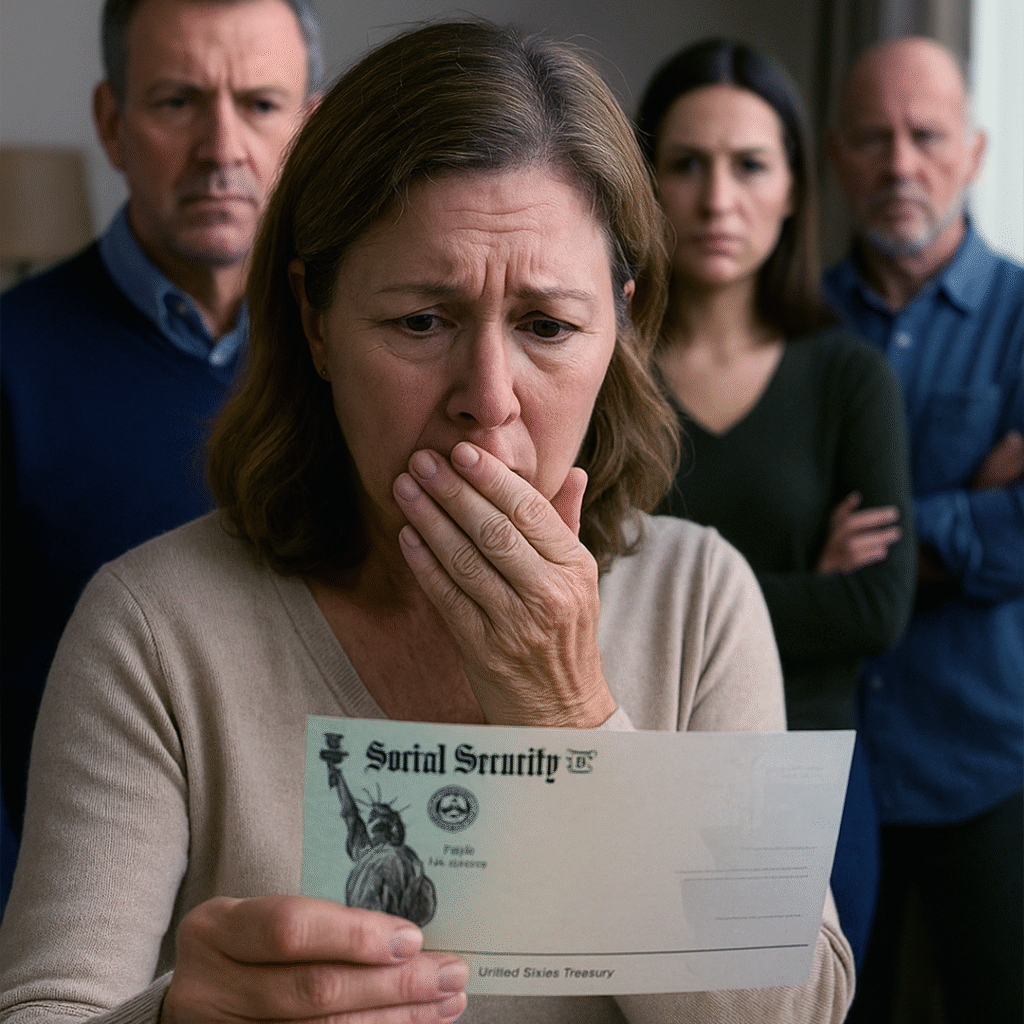The Petersons were known as a quiet, hardworking family living in the suburbs of Milwaukee. But behind their peaceful facade, a secret was unfolding—one that would land multiple family members in federal court.
After their grandmother passed away in 2012, no one notified the Social Security Administration. Her monthly benefit checks, totaling over $1,800, continued arriving. At first, the family claimed it was an oversight. But they continued depositing the checks for more than eight years.
By the time federal agents showed up, the family had collected nearly $175,000 in benefits they were no longer entitled to.
The Fraud That Went Undetected for Years
According to court documents, the family used the deceased woman’s bank account to cash the checks, transferring the funds into personal and shared family accounts.
“The system didn’t flag the death immediately because no death certificate was filed through federal channels,” said one SSA fraud investigator. “That gap allowed the payments to continue.”
The mistake turned into a pattern—and that pattern turned into federal fraud.
The Legal Blow: Multiple Charges Filed
In June 2024, the Department of Justice filed charges against three members of the Peterson family: wire fraud, theft of government funds, and conspiracy to commit Social Security fraud.
All three pleaded not guilty. However, the evidence included detailed financial records, bank transfers, and emails confirming knowledge of the deceased status.
Convictions on these charges could result in up to 10 years in prison, plus repayment of all misused funds and additional civil penalties.
What Should Happen When a Beneficiary Dies?
This case has brought attention to a critical issue: what should families do when a loved one who receives Social Security dies?
The answer is clear:
- Report the death immediately to the SSA (typically done by the funeral home, but families must follow up)
- Stop using the deceased person’s bank account
- Return any payments received after death
- Understand that even unintentional use of funds can result in civil liability
Failing to do so—even if it seems minor—can trigger serious investigations and life-changing consequences.
Public Reaction and Moral Debate
Online forums erupted with debate after the story broke. Some sympathized, saying the Petersons were likely under financial pressure. Others were less forgiving.
“They stole from a system that people depend on,” one commenter wrote. “That’s not just a mistake—it’s calculated theft.”
The SSA has since stated that the case is part of a larger effort to crack down on benefit misuse, especially as billions are lost to improper payments annually.
Avoiding a Similar Mistake
Financial planners and legal experts now urge families to stay informed:
- Keep clear documentation of all federal payments
- Designate a legal representative to handle end-of-life affairs
- Speak with a Social Security expert or elder law attorney when unsure
- Know that SSA fraud has no statute of limitations—it can be prosecuted years later
The Fallout
The Petersons are now awaiting trial. Their story has become a cautionary tale about how one decision—or failure to act—can turn a family’s future upside down.
The grandmother’s obituary was never published. Now, her name will live on in legal records
